Iran general Qassem Soleimani’s killing leaves Middle East a tinderbox
Donald Trump’s assassination of Iran’s Quds Force leader could unleash a wave of recriminatory attacks.
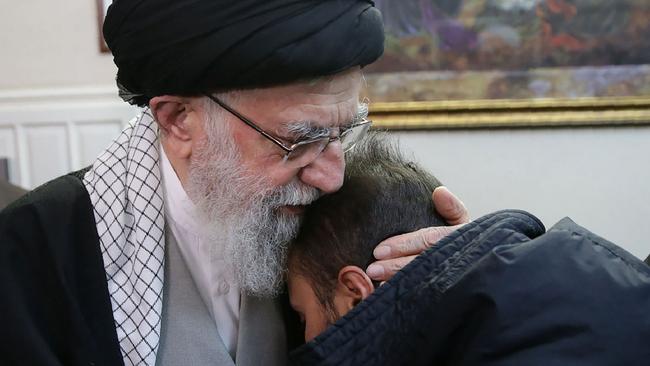
General Qassem Soleimani arrived in Baghdad from Beirut early on Friday accompanied by his son-in-law and several companions. He was met at the airport by his trusted ally, Abu Mahdi al-Muhandis, the leader of the militia group Kataib Hezbollah.
They left the small arrivals hall, piling into a convoy of vehicles, and wound their way down the dark airport road towards the city. They did not get far.
About 1.30am (9.30am AEST), heavy booms sounded as US MQ-9 Reaper drones struck the convoy. All eight on board were killed. Wallets, belts and Iranian and Syrian banknotes lay scattered around the burning remains.
Hassan, a young Iraqi, was watching television in his home near the airport road when he heard the blasts. A journalist friend called and told him: “Did you hear? Soleimani’s been killed.”
Hassan laughed him off. Soleimani, the commander of Iran’s elite Quds Force, was a leader whose immense reputation made him a subject of both fear and worship. It seemed impossible that he could be dead.
But the reports started to mount and Shia militia commanders issued angry statements. And then photos started to circulate of a grubby, lifeless hand wearing a russet signet ring. That was the clincher: it was Soleimani’s.
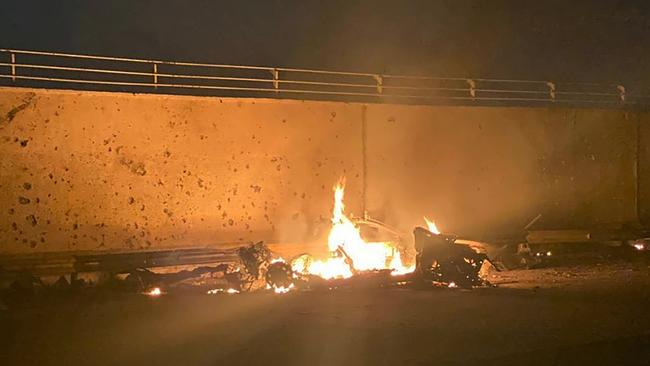
By about 9am, the news of his demise had reached Baghdad’s Tahrir Square, the centre of Iraq’s three-month-long protest movement against Iranian interference, which has cost more than 450 lives. Demonstrators filled the streets, hoisting a massive Iraqi flag, singing and dancing.
“I celebrated. I was joyful,” says Tahseen Ahmed, 20. “I hate them. They destroyed the people and caused so many martyrs.”
Untouchable’s demise
It was a shocking demise. Celebrity, tyrant, murderer and commander, Soleimani had seemed untouchable — posing in fatigues among his soldiers and appearing in Instagram posts, from Aleppo to Tehran. But on Friday morning he was, in the eyes of his supporters, a martyr to their cause, killed by the Americans he hated.
Accusations immediately began to fly over who had betrayed him. Many saw murky conspiracies in the fact that Soleimani had been travelling in a car from Baghdad airport alongside other powerful militia leaders. It seemed extraordinarily lax for such a high-value target.
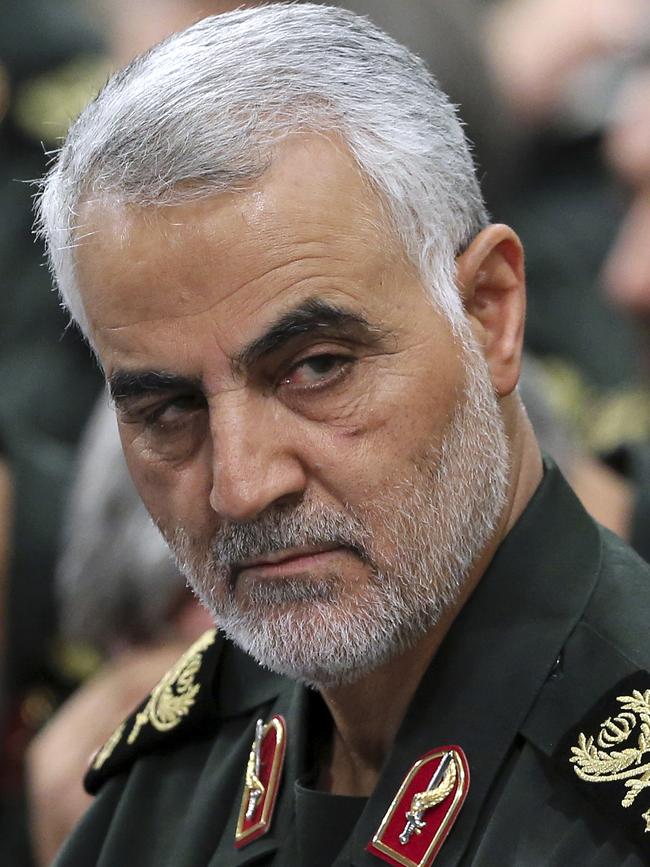
Amid frenzied meetings in Baghdad to discuss a response to the strike, militiamen and government officials accused each other — and everyone else, from Iranian factions to Lebanon’s Hezbollah militia and Iraqi intelligence — of betraying Soleimani to the CIA.
“We will investigate and we will find out who did this,” a senior Iraqi militiaman said. “Then we will take revenge.”
Momentous decision
The decision by US President Donald Trump to order the Soleimani strike stunned the world far beyond Baghdad and came after a fast string of tit-for-tat escalations between Iran and America.
First, on December 27, the Iranian-backed Kataib Hezbollah killed a US contractor and injured several troops in a rocket attack on an Iraqi military base in Kirkuk. Two days later, US airstrikes killed at least 25 people at Kataib Hezbollah bases, which then led to militia-backed protesters storming the US embassy in Baghdad on New Year’s Eve.
On Thursday afternoon, local time, Trump, calling from his Florida golf resort of Mar-a-Lago, approved the Soleimani hit, which had been in the works for several days. Key allies were not told.
The assassination of such a significant member of a foreign regime was a momentous decision that both previous presidents, George W. Bush and Barack Obama, had shied away from. “He should have been taken out many years ago!” Trump tweeted on Friday.
Killing Soleimani was reportedly the most formidable retaliatory option put on the table by Trump’s senior officials, who reminded the President he had not responded when the Iranians downed a US drone in June, attacked a Saudi oil facility and mined ships in the Gulf.
US Secretary of State Mike Pompeo said the President was responding to intelligence that Soleimani was planning a large-scale action in the region that “would have put dozens if not hundreds of American lives at risk”, though he offered few further details. According to The Washington Post, Trump also had concerns about looking weak.
Hawks in charge
Hawks are in the ascendancy in the Trump administration, including Pompeo, Defence Secretary Mark Esper, the Iran special representative Brian Hook and influential senators Tom Cotton and Lindsey Graham.
“The neo-cons are back in the saddle,” says Jacob Heilbrunn, editor of The National Interest. “This could take on its own momentum. I don’t think Trump can afford to back down here — he’s committed his prestige to this venture.”
Trump’s own geopolitical impulses fluctuate between isolationist and bellicose, sometimes to the point of incoherence, and he has at times disappointed Iran hawks, particularly with his decision not to retaliate after the downing of the drone. Now they are jubilant. Former national security adviser John Bolton tweeted his fervent support for the hit.
“It was bold, courageous and necessary,” says Mark Dubowitz, chief executive of the Foundation for the Defence of Democracies, a think tank that has been influential in driving the administration’s tough Iran policy.
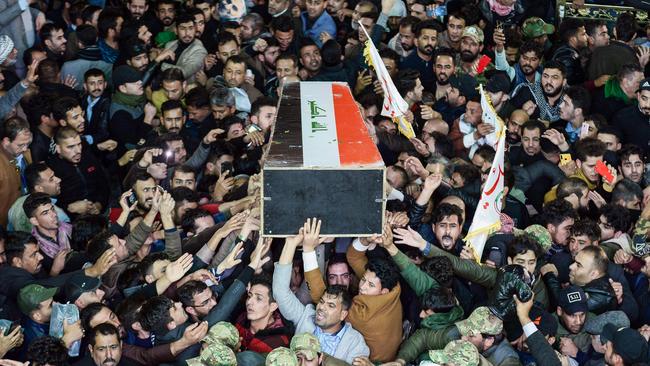
Support for Trump’s decision is also widespread in the Republican Party, with the notable exception of senator Rand Paul, a prominent opponent of foreign wars.
“Republicans, on the whole, like it when the United States kills terrorists who murder Americans,” says one veteran Republican foreign policy strategist in congress. “There’s shoulder-to-shoulder unity with the President on this one.”
But Trump has traditionally campaigned on ending costly foreign engagements, and figures popular among his base, including the Fox News host Tucker Carlson, have expressed concerns at where this dramatic strike may lead.
“You don’t want to do too much of this,” says Steve Bannon, Trump’s former chief strategist. “Because that’s drawing you into a kinetic conflict.
“We’ve already spent $US5 trillion ($7.1 trillion) in Iraq, with 7000 dead. I’m hesitant to apply American force in that region unless it’s entirely necessary.”
Strategy doubts
While few in Washington mourned Soleimani’s passing, much of the foreign policy establishment is also troubled by the hit, particularly the apparent lack of rigour and forward planning.
“Soleimani was a formidable adversary, so in the short term this is extremely beneficial to the US,” says Kenneth Pollack, a Middle East expert at the American Enterprise Institute. “Over the long term it is entirely unclear. I don’t see that the administration has a longer-term plan for turning this tactical victory into a strategic gain.”
Trump’s original stated intention with Iran was to rip up Obama’s nuclear deal and achieve a better one himself through a campaign of economic pressure. That conversation is now defunct, as 3000 US troops from the 82nd Airborne Division head to the region. “You can say goodbye to any nuclear negotiations,” says Pollack. “What we have done is unprecedented and enormously provocative.”
Uncharted territory
As oil prices surge and the Dow Jones drops, what happens next is the subject of fervent debate. Any number of potential Iranian retaliations are being fretted over, from proxy violence in Israel or Saudi Arabia to further assassinations or even a terrorist attack in the West.
Iran could well escalate its attacks on US bases in Iraq via its proxies.
“The British and Americans all need to leave our country,” says one Iraqi militiaman. “There will be no bases left, God willing.”
This is “uncharted territory”, as one Western diplomat in the region put it: “We’re just waiting. The ball is in Iran’s court now. We didn’t know this would happen, and we don’t know what they’ll do. It’s a total clusterf..k.”
It may be that the Iranian response comes in the form of a cyberattack, or more shipping attacks in the Strait of Hormuz. But among Iran’s regional supporters, a powerful and symbolic response is expected.
In Tehran, Iranian President Hassan Rouhani visited Soleimani’s family home, where the general’s sobbing daughters asked him who would avenge their father.
“Everyone will take revenge,” he replied.
Additional reporting: Pesha Mgid
The Sunday Times

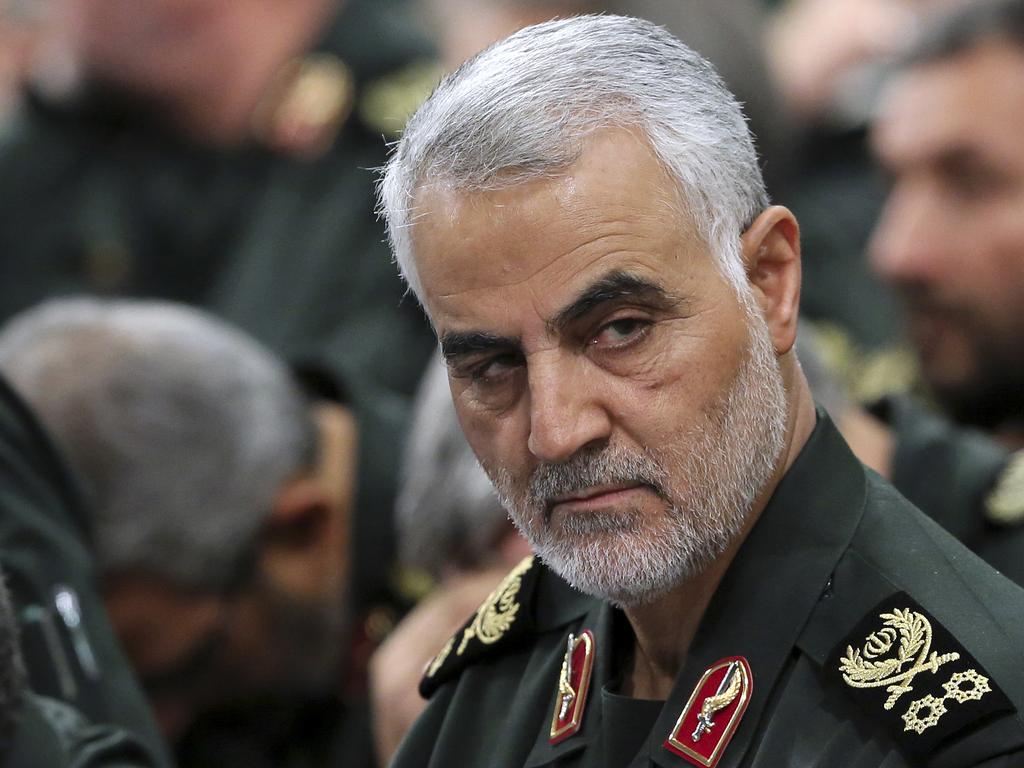


To join the conversation, please log in. Don't have an account? Register
Join the conversation, you are commenting as Logout